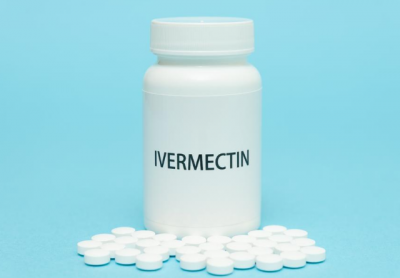South Africa: Use of Ivermectin for COVID-19 Made an Order of Court
Sahpra et al must pay the applicants R1.8m.

All Global Research articles can be read in 51 languages by activating the “Translate Website” drop down menu on the top banner of our home page (Desktop version).
***
Tuesday (April 6) saw the Pretoria High Court hand down the following order:
- That a pharmacist, medical practitioner and any other person registered under the Health Professions Act may sell a medicine that contains ivermectin to a patient on prescription.
- “Unregistered ivermectin-containing finished pharmaceutical products remain accessible under the present programme” through authorised suppliers.
- A medical practitioner may initiate treatment with ivermectin at the same time as submitting an application for the individual to the South African Health Products Regulatory Authority (Sahpra).
The respondents (without admission of any liability) were ordered to pay a total of R1.8 million to the applicants.
Background
As the Covid-19 pandemic swept across the world, indiscriminately infecting and killing helpless victims, with no known cure, there were those who resorted to desperate measures.
Many experimented with ivermectin, an antiparasitic drug mainly used in the treatment of parasites in animals. And whereas the death toll in hospitals mounted, those who used ivermectin on the sly started singing its praises.
The use of ivermectin in the treatment of Covid-19 was supported by many medical professionals.
But Sahpra stood firm, on January 28 issuing a press release warning of “lack of adequate evidence to support its use”, that its quality could not be guaranteed because of “widespread unregulated use”, and the lack of any clinical trial.
Infections continued, death rates mounted, well-known personalities and loved ones were felled. “Do you know a farmer” became a topic of conversation.
Section 21 programme allowing access
On January 28, Sahpra set up the Ivermectin Controlled Compassionate Use Programme Guideline for access to unregistered ivermectin for human use under Section 21 of the Medicines and Related Substances Act.
Essentially, this provided that medical practitioners could apply for approval for the use of unregistered ivermectin per an individual patient. This application had to be supported by substantive documentation.
Sahpra warned of “unclear evidence of both benefit and harm”, “reports of illicit products entering the South African market”, and that veterinary products were being used.
Sahpra established a tiered mechanism to control access and monitor use, and required stringent reporting.
The authorisation could be granted for the manufacture, importation, wholesaling or distribution of a medicine, and for licensed healthcare facilities to hold bulk stock. Authorisation had to be granted to a registered medical practitioner per named patient, and the “patient outcomes” had to be reported.
A small allowance was made for urgent cases, in that treatment could start at the same time that an application was made, but that authorisation was not guaranteed.
Sahpra did not constrain itself by regulating the number of days by which it had to respond to an application, including an urgent application.
The average time of receiving an ‘authorisation’ from Sahpra is not known.
Treatment for rosacea
A light appeared on the horizon when, on March 16, Sahpra registered a product containing ivermectin for the treatment of rosacea, a human skin condition.
Because the Medicines and Related Substances Act requires that only registered medicines can be mixed together (compounded), this new registration for human use essentially meant that ivermectin could be compounded with other registered medicines, and made accessible in accordance with the act, for the treatment of Covid-19.
But it was necessary to approach the court for an order compelling Sahpra to allow this.
Four different applications were made to court:
- AfriForum, Dr George Coetzee, Gideon Samson Gumeda and Geelbooi Motsipa.
- The African Christian Democratic Party and Doctors for Life.
- ‘I can make a difference, and the Doctors and Medical Practitioners Group.
- Pharma Valu Irene CC, Marx & Marx CC, JJ Strydom CC, Menlo Park Apteek CC, JJ Strydom Apteek CC, Pharma Valu Newlands CC, and Strydom & Pretrius CC.
The respondents in all applications were Sahpra and Health Minister Zweli Mkhize – with the director-general of the Department of Health and the member of the Executive Council for Health in Gauteng as additional respondents in one of the applications, Sahpra CEO Boitumelo Semete-Makokotla and President Cyril Ramaphosa as respondents in another, and the Department of Health mentioned in one application.
The position of the minister and Sahpra
The minister of health, who is cited as a respondent in all the applications, and the president, who is cited as a respondent in one of the applications, felt compelled to place on record that:
- They have carried out their constitutional and statutory duties in protecting the public health against the Covid-19 pandemic.
- Sahpra is held accountable and provides the requisite reports.
- The minister relies on the “expertise, recommendations and consultations” in regard to medicines of Sahpra and approves the actions and decisions made by Sahpra.
- Sahpra is to provide the public with “accurate information regarding the safety, efficacy, and quality of ivermectin” as well as any other treatment or preventative medicine for Covid-19.
*
Note to readers: please click the share buttons above or below. Forward this article to your email lists. Crosspost on your blog site, internet forums. etc.

